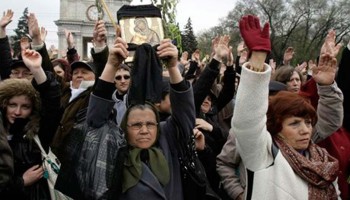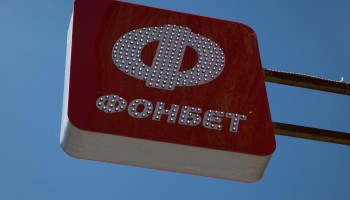To backtrack a bit: Former US ambassador Peter Galbraith’s involvement in oil deals in northern Iraq caused a dust-up last week. Galbraith advised the Kurdish government of the oil-rich north as the Iraqi constitution was being negotiated in 2005, and has been credited with helping put the control over new oil fields into Kurdish, and not Baghdad-based, hands. But Norwegian journalists have come up with documents linking Galbraith to a Norwegian oil company that operates in Iraq. The company apparently gave Galbraith a five percent stake in one of Kurdistan’s oil fields in the spring of 2004. (One analyst told the New York Times that the stake was worth at least $115 million.) Galbraith has said he was acting as a private citizen and had done nothing improper. One Iraqi told the NYT he was left “speechless” by the thought that an oil company had been helping out with the drafting of the constitution. Given that most Iraqis apparently think that oil was the reason behind the US invasion, this type of deal just doesn’t look good, particularly in a country where people live on incomes that are just under $2,200 per year. And Galbraith is a heavy-duty, influential man, a former ambassador to Croatia and, until recently, the top American at the UN mission in Afghanistan.
At any rate, an opinion piece in Forbes points out that globe-trotting former diplomats like Peter Galbraith are unaccountable to anyone but their own consciences when it comes to conflicts of interest or the more insidious revolving door of diplomacy/consulting/business that raises eyebrows around the world.
Bringing the issue back to South East Europe, the Forbes piece says Kosovo is a good example of the latter.
… international officials in the U.N. mission have begun to switch hats with an ease and nonchalance that would curdle the blood of any ordinary conflict-of-interest lawyer. Two examples should suffice. The chief legal advisor to the U.N. mission -- who acted as de facto law-maker in Kosovo during almost eight years of international governance -- has now changed horses, representing Kosovo's prime minister, without any cooling-off period, in negotiations against the ongoing U.N. mission.
So, too, the former deputy special representative of the U.N. Secretary General -- who supervised the privatization of the energy and transportation sectors in Kosovo-- has gone to work for the main political rival of the prime minister, a former military leader of the Kosovo Liberation Army named Ramush Haradinaj, as an "advisor." Haradinaj is believed to have a major stake in the privatized companies.
The UN’s version of an internal affairs department, the OIOS, did investigate the latter man for, among other things, his close relationship with Haradinaj in 2007. (At the time, Haradinaj was on trial for war crimes; he was acquitted in April 2008.) But the man was soon free – the UN didn’t extend his contract at the end of that year. A few months later the OIOS cleared him of wrongdoing.
Maybe it would be easier to shrug off this sleazy revolving door if the UN itself had proven itself to be squeaky clean in Kosovo. Unfortunately, the black eyes abound. A man the UN appointed to head Kosovo’s electric company transferred €4 million due the company into his own bank account in Gibraltar. The OIOS found fraud and systematic corruption at Pristina Airport in 2006; later that year an international prosecutor in Kosovo indicted the Briton who’d run the airport for accepting bribes from local people in exchange for jobs. And earlier this year, a British newspaper reported that though theft, graft and widespread breaches of tendering rules marred the UN’s EU-financed operations for years, neither organization is interested in further investigation. Little wonder that in the more than 10 years since the war ended, and €1 billion in international money thrown at the electricity utility, the power cannot seem to stay on in Kosovo.
Also in Kosovo news last week, a German intelligence agent formerly stationed in Pristina went on trial in Munich for allegedly sharing classified intelligence information with his Macedonian-Albanian lover. That lover was also a man, which meant the papers unfortunately went nuts over the “gay affair” angle, rather than giving prominence to the allegations that the Macedonian was passing along his German boyfriend’s intel to organized criminal figures and local intelligence services.
Regional
Football Case Hints at Massive Scheme
In a case that officials say probably merely hints at the levels of bribery and match-fixing in European football, police arrested 17 people and seized more than €1 million in cash and other assets in raids in Austria, Germany, Switzerland and the UK last week. Authorities said they’d arrested the leaders of a gambling cartel who had bribed players, officials and trainers to influence more than 200 football matches in nine countries. The New York Times had the story:
The German organized crime unit, based here in the Ruhr region near Düsseldorf, and the governing body for European soccer, known by its acronym, UEFA, refused to identify the suspects or to specify the games in question, saying that would jeopardize the case. A German soccer club, F. C. Würzburg Kickers, said one of its players had been arrested in the sweep. It said the player had been involved in a previous betting scandal.
…
In addition to the three Champions League matches under suspicion, the investigators said Friday that they had evidence involving 12 matches in the Europa League, another inter-European competition.
…
In Germany, Belgium and Switzerland, second-tier professional leagues are involved, the police said. In Austria, Bosnia, Hungary, Turkey, Slovenia and Croatia, games in the top leagues as well as secondary leagues are included.
OCCRP completed an investigative project last December that covered dirty trades, fixed matches and general odiousness in football leagues around southeastern Europe, including an interview with a former fixer. And one of its founders and partner organizations, Center for Investigative Reporting in Sarajevo (CIN) did its own report found at http://www.cin.ba/Reports/1/?cid=876,1,1 (Long after the CIN report, two league officials were found guilty of mismanagement of funds recently and one board member was recently arrested on longstanding charges that had nothing to do with his performance on the board). These recent raids and arrests, though, seem to offer more than a hint of a massive and organized scheme. Authorities quoted in the Times story said they had evidence of at least €10 million in illegal gains made by the gambling cartels. As of this writing, no one has been charged.
Alleged Panther Pleads Not Guilty
How did I miss this last week? Two weekends ago, a Montenegrin national suspected of being a member of the Pink Panthers thievery gang pleaded not guilty to robbery charges in a Montenegrin court.
Vladimir Lekic is charged with taking part in a Frankfurt robbery in December 2003, in which thieves made off with $1.31 million in watches. He apparently told the judge that yes, he was in Germany at the time of the robbery, but he was just passing through. Lekic was arrested on an Interpol warrant in June.
Survey: Russia Worst in Extortion
Companies in Russia have the worst problems in the world as regards employee theft and official extortion, a survey from PricewaterhouseCoopers LLP stated last week.
Theft and bribery hit Russia’s financial, energy and mining industries the hardest, according to the survey of 3,000 executives from 55 countries, including 86 Russians. “The nature of these industries means that they are particularly exposed to both asset misappropriation and corruption, the two most prevalent types of economic crime,” PwC said.
The damning report, which also said that 48 percent of the companies surveyed had reported an instance of bribery or corruption in the past 12 months, has come out in the same month that a Transparency International corruption index ranked Russia right next to Sierra Leone.
But surveys and numbers can only tell so much. To see the real story, wrote Spiegel Online last week, one should read a pseudonymously published novel that’s recently been the buzz of Moscow.
The novel, "Okolonolya" (Close to Zero), is being touted as "gangsta fiction," but the political gangsters featured in its 112 pages are very much real. The author paints a shocking picture of the Russian capital, with its "trading in offices, medals and bonuses." It is a place where government funds are siphoned off into the pockets of wives, lovers and nieces. "Corruption and organized crime, next to schools and the police, are the pillars of social order," explains an intelligence service colleague of the protagonist.
Further south, the leader of Ingushetia talked to Reuters last week about the result of such pervasive corruption. Yunus-Bek Yevkurov, a former paratrooper, said that
…widespread state corruption was helping an Islamist insurgency in the region.
He declined to say what proportion of officials were corrupt, but acknowledged the problem was bad enough to fuel a cycle of violence and crime that has put his impoverished region at the heart of mounting violence across the North Caucasus.
"Bandits give money to officials, knowing they can be easily paid off," Yunus-Bek Yevkurov told Reuters in an interview during a trip to the Russian capital. "This in turn means officials are (aiding) the terrorists and militants."
Ingushetia has seen the worst of the violence that’s roiled the North Caucasus this year, violence that Russia blames on foreign-financed local Islamic insurgents. Armed attacks, the Reuters story reported, are an almost-daily occurrence in the area, which lies just east of Chechnya. Yevkurov himself barely survived an assassination attempt in June. He said he wanted to use a $980 million aid package from Moscow to reduce crime by developing the economy and creating jobs. Reuters reported that Yevkurov differs with the experts and analysts who say Ingushetia is basically at war with Islamist rebels. Instead, he’s
… saying the violence stemmed from poverty and easy access to weapons, as well as abuses and corruption by law enforcement agencies.
He said his biggest challenge was to prevent "disenchanted, disappointed" young men being drawn into the insurgency by creating more jobs and establishing social programmes.





